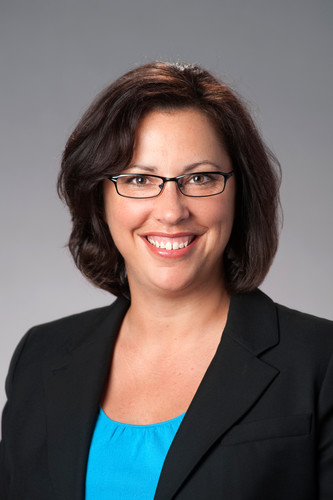Tori Svoboda describes herself as an “in my head kind of person.” She’s an intellectual at heart who enjoys yoga, reading and spending time with her three dogs. An accomplished student affairs administrator, Svoboda was looking for an opportunity to create space for the inquisitor and learner in her. That landed her in the College of Education, Leadership & Counseling (CELC) at the University of St. Thomas, where she received her leadership doctorate in 2012.
When she began taking classes, Svoboda didn’t think she was doctoral material. The thing that surprised her most about the program? “That I finished,” she jokes. But her love for learning kept her committed to the degree program and her cohort. “I was taking classes because my day job was all consuming,” she recalls. “I had so much more energy for my job when my mind was engaged. I had the space to be inquisitive and curious, which was invigorating.”
Like for many graduates of the CELC, a new degree opened up the opportunity for a career change. The new graduate missed being a student, so what better place to land than back in the classroom. Thanks to networking with one of her CELC professors, she landed a job as an adjunct professor at the University of St. Thomas. She recently took a position as an assistant professor of student affairs administration in higher education at the University of Wisconsin-La Crosse. Her experience as an educator has confirmed her career choice: “One of the joys of moving from administration to teaching is that part of my week is devoted to investigation, discovery and reflection,” she explains. “Teaching allows me to stay in my head and in my heart as I connect with my students. Co-constructing knowledge with them is such a gift. I’m just as much of a student as they are.”
CELC faculty played a significant role in Svoboda’s success and her ultimate career choice. “Every person I encountered in the program was incredibly bright,” she reflects. “They challenged and supported me while encouraging me to broaden my understanding of the world.” Another highlight of the program for Svoboda was the cohort model. “I met people I would have never met in my professional network, some of whom became my closest friends, confidants and writing partners. I didn’t expect those connections,” she admits.
Svoboda is thankful to continue to be a part of the St. Thomas network. In fact, one of her current research projects is in collaboration with Dr. Kate Boyle, chair of the Department of Leadership, Policy and Administration, studying online graduate preparation programs in student affairs. Her other current research project reflects her passion for social justice: a qualitative assessment of early alert interventions for college students in danger of failing, which have overwhelmingly targeted students of color. Her research illuminates that the outcome is stereotype confirmation and a type of racial profiling deficit ideology. “I saw the thread of social justice woven throughout most courses,” she recalls. “The themes of power, freedom and change—I was so inspired by that. You don’t see that sort of course just anywhere.”
How did the CELC program help Svoboda achieve success? “School was a place where I could work through challenges with a group of peers with a variety of backgrounds,” she explains. “I never felt like I was making room for my education because it was so connected to my passions and beliefs. It gave me back so much more than I had expected.”








